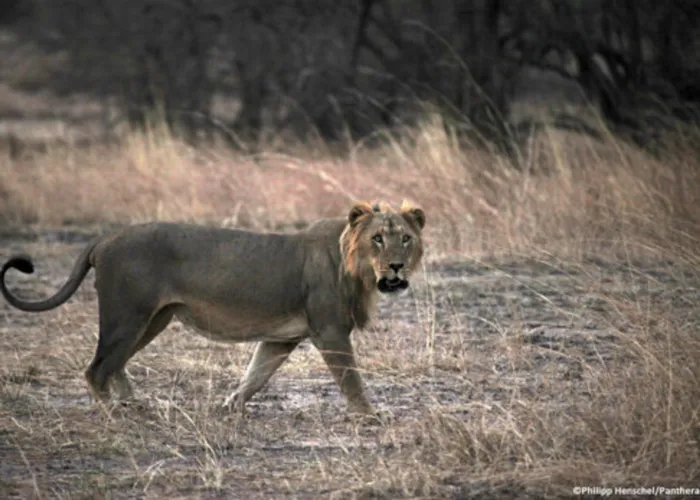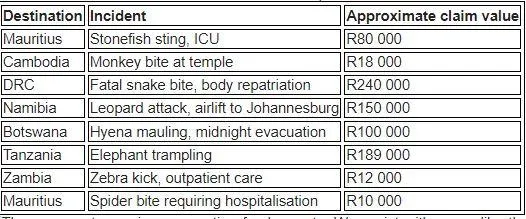
Animal encounters can turn hazardous in a heartbeat—discover why comprehensive travel insurance is essential for every adventure-loving South African traveller, and learn how to prepare for the unpredictable nature of wildlife encounters.
Image: File.
As South Africans increasingly embark on adventure-filled journeys across the globe, the thrill of wildlife encounters often lurks alongside unseen dangers.
Jason Veitch, Head of Accident and Health at Santam Travel Insurance, underscored a critical message, one animal attack can ruin a holiday, and such incidents are alarmingly common.
“Animal encounters while travelling can turn dangerous in an instant, from monkey bites in Asia to snake attacks on safari,” Veitch said.
He articulated a growing concern that South African travellers, known for their adventurous spirit, often underestimate the risks posed by wildlife.
This tendency spans both leisurely getaways and bucket-list safari destinations.
“People tend to picture animal attacks as dramatic events involving the Big Five, but most claims originate from everyday travel situations,” he added.
Concrete data from the World Health Organisation (WHO) revealed shocking statistics, millions of people across the globe are treated for animal bites and stings each year.
Snakes, dogs, monkeys, and even insects contribute to severe health complications or even deaths.
Veitch elaborated on real claims that South Africans have faced abroad, illustrating that these incidents are not isolated freak occurrences.

Animal encounters can turn hazardous in a heartbeat—discover why comprehensive travel insurance is essential for every adventure-loving South African traveller, and learn how to prepare for the unpredictable nature of wildlife encounters.
Image: Supplied.
“We assist with such cases every year. When treatment necessitates intensive care or urgent evacuation, financial burdens escalate dramatically.”
For many, the transition from prioritising physical health to financial concerns occurs alarmingly quickly in the wake of an attack.
Many wildlife-related injuries transpire far from advanced medical facilities.
In less developed areas, vital resources like antivenom or vaccinations might be in short supply or outright unavailable.
“With snakebites or potential rabies exposure, every moment counts/ A traveller may need to be airlifted for treatment; without proper insurance, this could lead to financial ruin,” Veitch said.
Even encounters that seem minor can escalate.
Monkey bites, prevalent in destinations like Bali, Thailand, and Cambodia, frequently lead to urgent rabies vaccinations.
Meanwhile, the sting of a stonefish can result in paralysis and fatal respiratory complications if not treated promptly and correctly.
However, Veitch cautioned that travel insurance has its limitations.
Claims can be denied for those travellers engaging in reckless behaviour, such as feeding animals or entering restricted areas.
“If you provoke a baboon for a selfie or attempt to pet a wild animal, that’s not an insurable risk. We expect travellers to show basic caution and respect for their host country and its wildlife,” he further said.
While travel insurance is crucial in the event of an incident, prevention stands as the best strategy.
Veitch offered the following advice to travellers:
“In remote locations, your insurer may be your best ally for quick access to safe medical care. Calling early can truly save your life,” Veitch said.
As wildlife encounters often embody the magic of travel, they also come with inherent risks.
“The point isn’t to be afraid but to be prepared. We have witnessed everything from antivenom airlifts to safari evacuations. The world is vibrant and wild, and since we adore exploring it, having your insurance in order and emergency plans laid out is essential before embarking on any adventure,” Veitch added.
BUSINESS REPORT